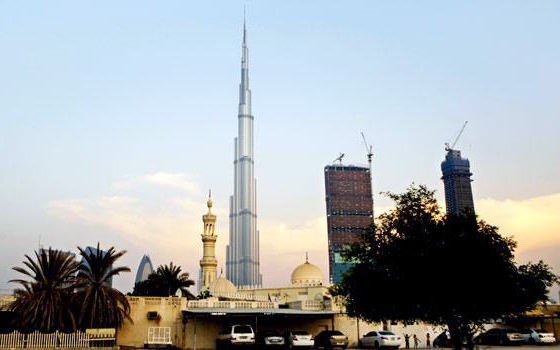About $180 billion of contracts for new construction projects will be awarded in wealthy Gulf states this year, the largest amount for six years, despite falling oil prices, according to a recent study.
Brent crude oil sank to a four-year low below $83 a barrel on Thursday because of ample supply and the prospect of a weak global economy. It has dropped from a peak of $115 in June.
If current prices are sustained for a long period, perhaps a year or so, oil revenues of the Gulf states will be reduced and governments could become less willing to spend, and decide to cut back on projects, construction industry executives and analysts said.
So far, however, there is no clear sign that cutbacks are looming in the six-nation Gulf Cooperation Council, which comprises Bahrain, Kuwait, Oman, Qatar, Saudi Arabia and the United Arab Emirates, they said.
"We are going to beat the 2013 figure this year with $180 billion worth of contracts awarded," said Edward James, director of analysis at MEED Projects, an online project tracking firm which conducted the study.
"This is driven by substantial projects that were awarded this year by Qatar, the UAE and Kuwait."
Last year, $156 billion of projects were awarded in the GCC, largely by governments and state-backed companies, as most Gulf countries recovered strongly from the global financial crisis and spent on major infrastructure projects designed to help their economies diversify beyond oil. At the peak of the boom in 2008, GCC contracts totaled about $200 billion.
The concern for the construction industry is that oil prices could drop for an extended period below the "break-even" levels which governments need to balance their budgets.
This would not be disastrous for the governments; they have built up huge financial reserves which in many cases could cover heavy spending for years to come. Also, governments in the big GCC economies have little debt and could easily borrow from markets.
But the experience of running budget deficits could cause governments to become more cautious about spending. Saudi Arabia will have a break-even price of $90.70 a barrel in 2015, the International Monetary Fund has estimated; the UAE would face a level of $73.30, Kuwait $53.30 and Qatar $77.60.
Reuters
17 October























































